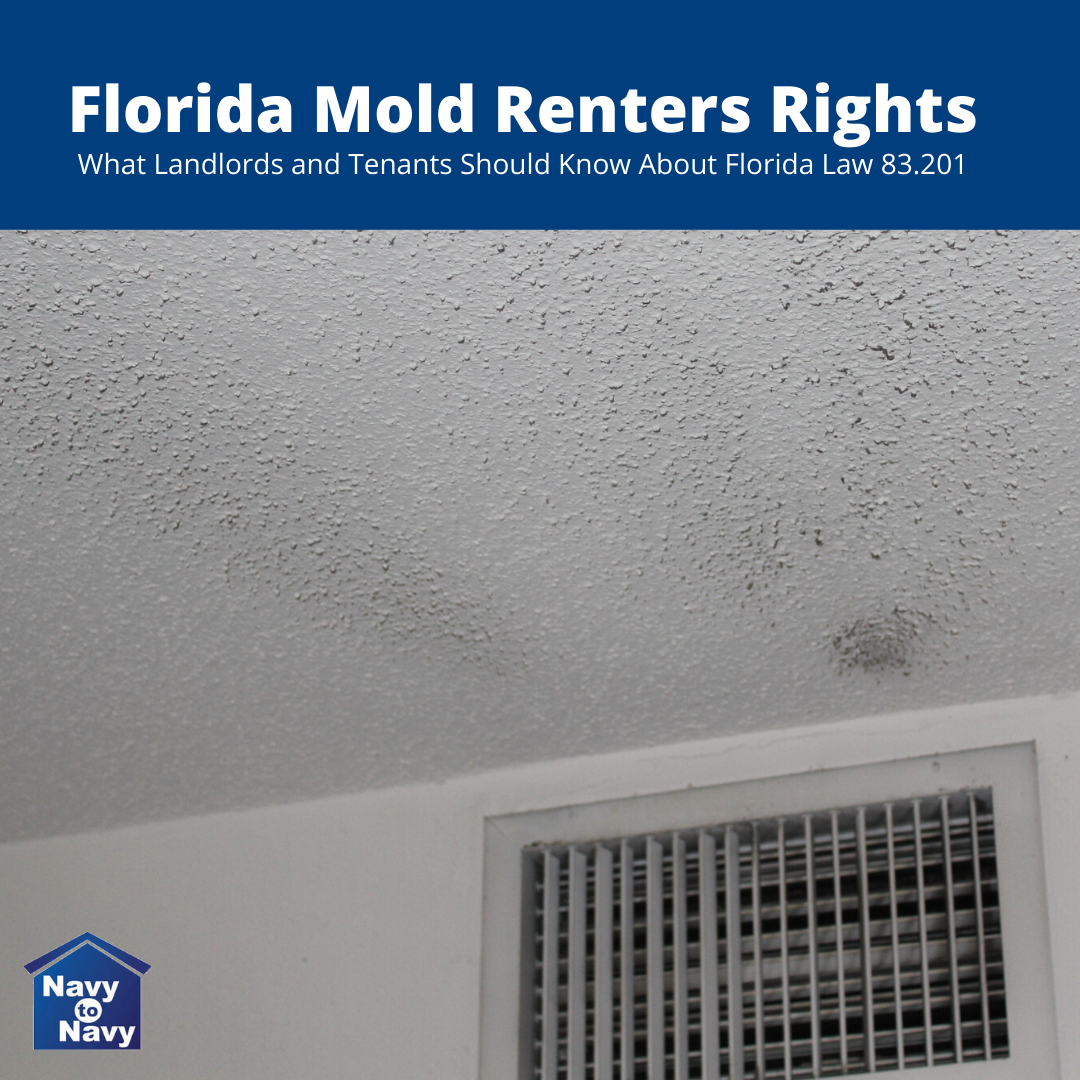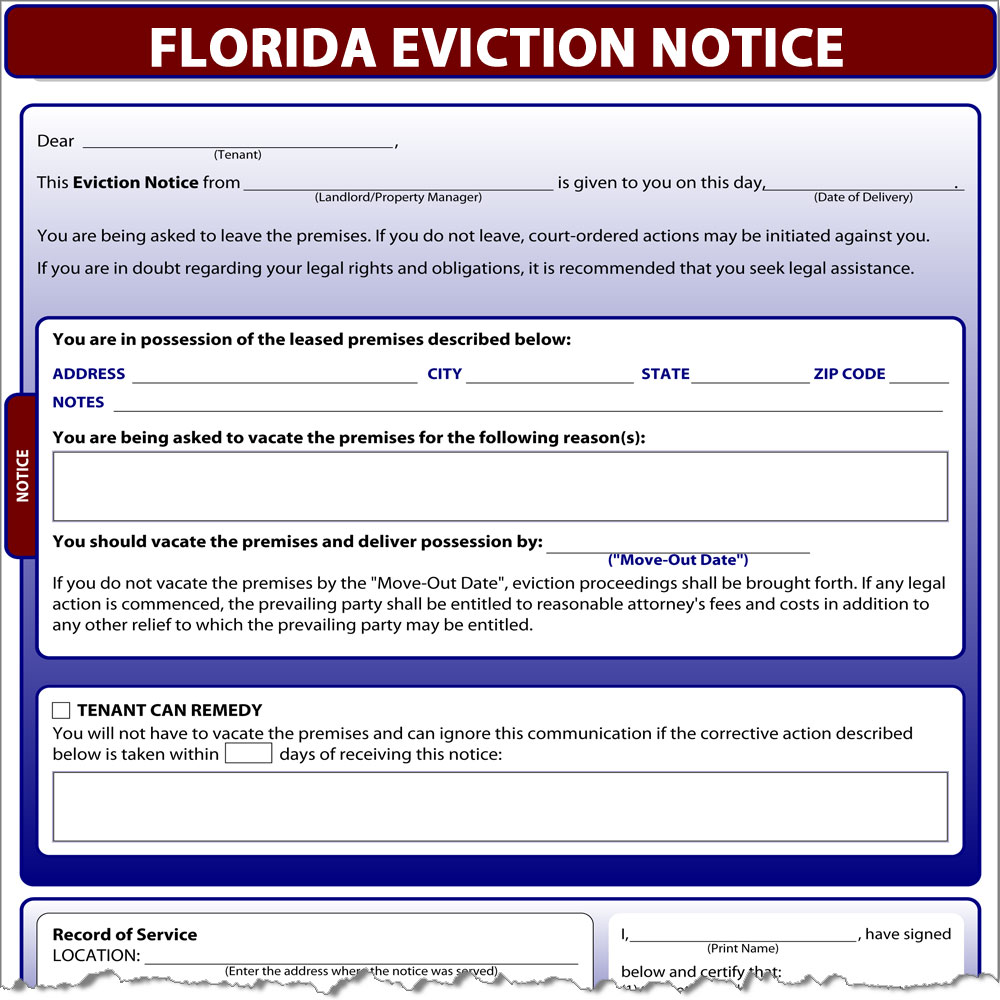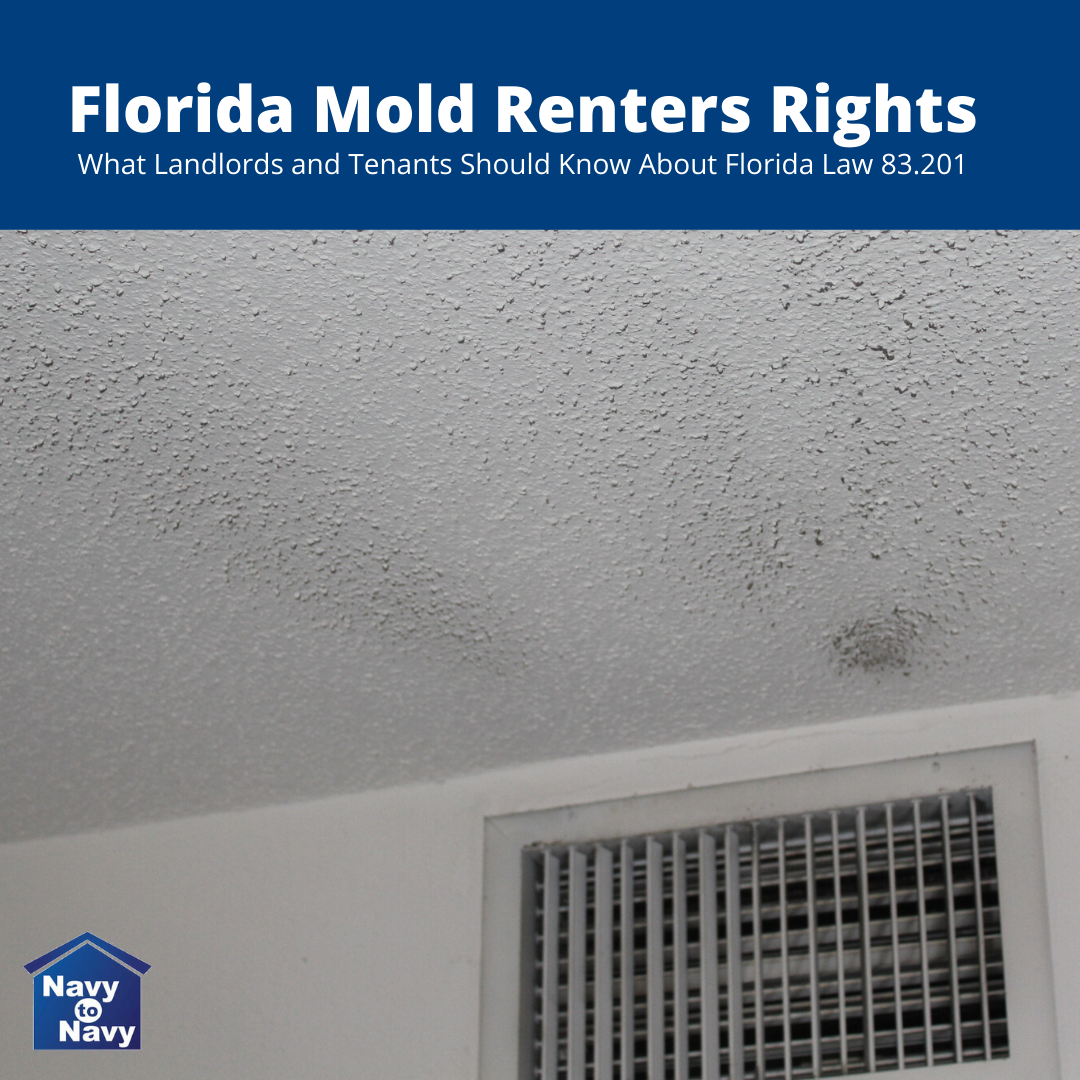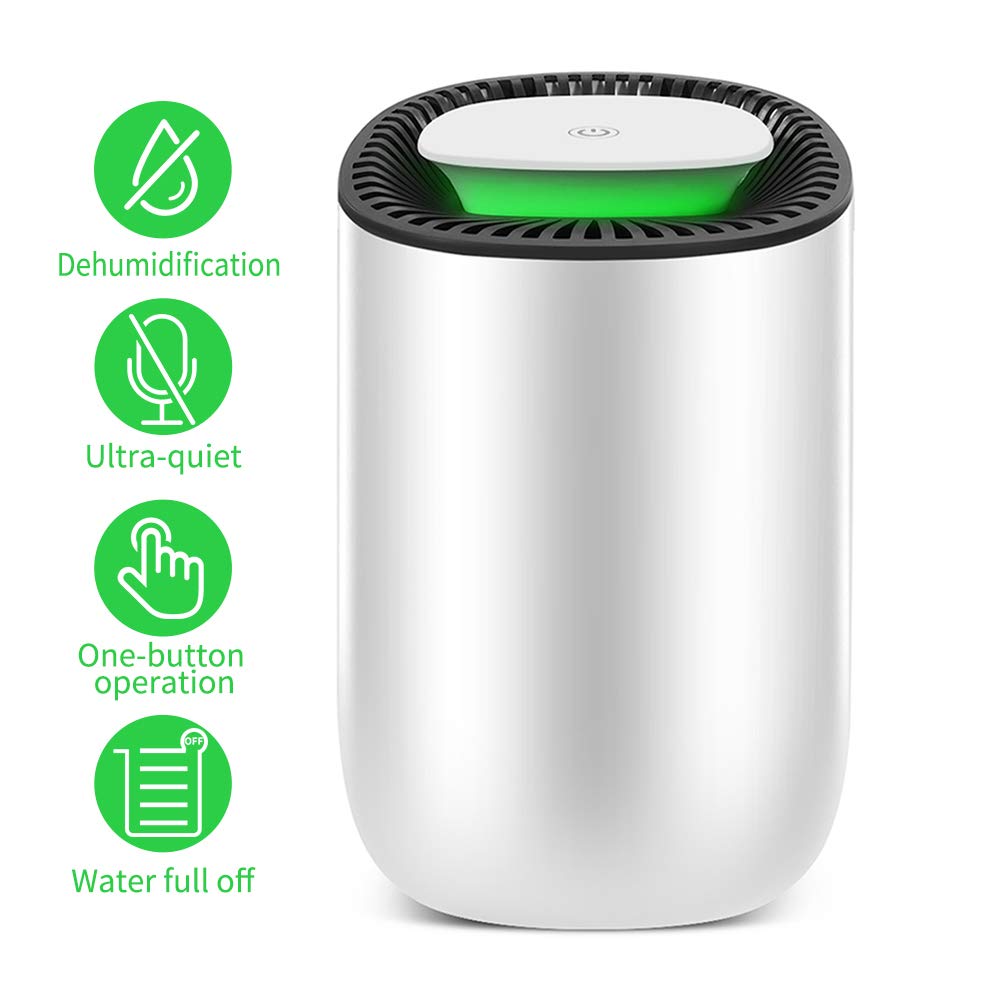
Photo from TheBuildingInspector.Net
Florida Mold Renters Rights
Summer always increasing the amount of Google searches for 'Florida Mold Renters Rights'.
Why?
It goes without saying that the climate in Jacksonville meets both the criteria for mold to grow. It’s humid. It’s hot.
That is really all you need.
So, when your rental home is located in an area that is not only conducive to mold growth, but poised for it, many times it becomes a question of not “if” you have mold, but “when” you have mold - how do you deal with it?
This article will review the legal aspects regarding mold in rental properties in Florida, as well as prevention and remediation best practices.
Mold Remediation: Landlord and Tenant Legal Responsibilities
If you are using a professional property management company in Jacksonville, FL, you’re management company should be certified and know how to handle this for you.
If you’re using a good Jacksonville property management company, you can rest easy and not stress.
That’s what property management companies are there for - to take care of you and your property so can relax.
Florida State Law Rent Withholding Overview
This article will break down Section 83.201 Florida Landlord and Tenant law, through the scope of the Florida mold renters rights lens, reviewing landlord responsibilities and timeframes, as well as renter responsibilities when it comes to exercising the rent withholding option.
Florida law allows a rent-withhold option for the tenant in section 83.201, which permits the tenant to withhold rent until certain repairs are made, but it is a bit tricky to navigate.
As a tenant, you’ll want to contact your landlord or property management company first, before pursuing the rent withholding option, as this option can lead to an eviction if the proper steps are not taken.
Section 83.201 begins:
“When the lease is silent on the procedure to be followed to effect repair or maintenance and the payment of rent relating thereto”
If your rental is managed by a professional property management company, that company should have a customized lease agreement that addresses the issue above.
Your lease agreement should not be “silent on the procedure to be followed to effect repair or maintenance”.
The definition of “wholly untenantable”...
“and the landlord has failed or refused to do so, rendering the leased premises wholly untenantable,”
Depending on your court jurisdiction and the judge, this idea of “wholly untenantable” is up for some interpretation.
Landlord/Tenant dispute cases will be pursued in Civil Court, and the judge will make the call on whether the property is uninhabitable based on the amount and type of mold present in the property.
The tenant must notify the landlord or property management company of the issue first, and allow time to resolve that issue as (hopefully) laid out in a well-written lease agreement, BEFORE the option to withhold rent is allowed.
“and the landlord has failed or refused to do so (make necessary repairs after being notified by the tenant), rendering the leased premises wholly untenantable, the tenant may withhold rent after notice to the landlord.”
The tenant must first notify the landlord or property management company of the issue and then allow time to resolve the issue (as laid out in the lease agreement).
*IF* the landlord or property owner has not addressed the repair issue within the time frame allotted, and *IF* the property would be deemed “untentable” (unfit to live in), *THEN* the tenant may issue a written notice to the landlord or property management company notifying them of intent to withhold rent.
If you are a tenant, you’ll want to contact your local county codes office first to see if your county considers mold a reason for labeling a property “untenantable”.
Otherwise, withholding rent could be a cause for eviction.

The tenant may then proceed with giving landlord notice to make requested repairs.
“The tenant shall serve the landlord, in the manner prescribed by s. 83.20(3), with a written notice declaring the premises to be wholly untenantable, giving the landlord at least 20 days to make the specifically described repair or maintenance, and stating that the tenant will withhold the rent for the next rental period and thereafter until the repair or maintenance has been performed. The lease may provide for a longer period of time for repair or maintenance.”
Per the statement above, the landlord has a minimum of 20 days to make the repair, after receiving written notice. The tenant may withhold rent for the next rental period and thereafter, during this time, until the repair has been performed.
Don’t miss this line - “The lease may provide for a longer period of time for repair or maintenance.”
The tenant must save the withheld rent (not spend it) to give to the landlord when the repairs are complete.
“Once the landlord has completed the repair or maintenance, the tenant shall pay the landlord the amounts of rent withheld.”
In some civil court hearings, a judge may require a tenant to show proof that the withheld rent is still in hand, requiring a “deposit” to be made in good faith of the repairs being completed.
If repairs are not made by the landlord or property management company…
“If the landlord does not complete the repair or maintenance in the allotted time, the parties may extend the time by written agreement or the tenant may abandon the premises, retain the amounts of rent withheld, terminate the lease, and avoid any liability for future rent or charges under the lease. This section is cumulative to other existing remedies, and this section does not prevent any tenant from exercising his or her other remedies.”
There are several options available to the judge, the landlord, and the tenant.
The time frame allowed for repairs could be extended.
*If the property is ruled by civil court* to be wholly untenantable, the tenant may also choose to vacate the premises, retaining the amount of rent withheld and terminate the lease (for failure of the landlord or property management company to make the premises tentable within an agreed upon time frame), without any legal liability for future rent or charges associated with breaking a lease agreement.
And even this section mentions that their could be “other remedies”, which would likely be laid out for the tenant and landlord or property management company in a civil court hearing.
Mold Prevention - Best Practices for Keeping Your Jacksonville Home Healthy
According to the Florida Department of Health website, mold spores are always in your home.
“Should I be worried about mold in my home?
Yes and no. On the one hand, there will always be mold in your home in the form of spores and pieces of mold cells. The presence of mold in the air is normal. On the other hand, one should not let mold grow and multiply indoors. When this happens, your level of exposure can increase, thereby increasing the risk of potential health problems. Building materials, household goods and furnishings may also be damaged. Mold needs to eat to survive, and it's perfectly happy eating your home if you allow it.”
So the trick here is to keep mold to a minimum.
Florida Department of Health gives a few great tips on how to lower the moisture and humidity levels in your home to reduce chances for mold growth.
Excessive moisture in the home can come from these everyday sources:
- Flooding from the outside (storm water, overflowing lakes, streams, storm surge, etc.)
- Flooding from the indoor (overflow from sinks, tubs, toilets, air conditioner drain pans or sewerage systems)
- Condensation (caused by indoor humidity that is too high or surfaces that are too cold)
- Water leaks from outside the building (roof, walls, floors)
- Indoor plumbing leaks or broken water pipes
- Outdoor sprinkler spray hitting the walls, or indoor fire sprinklers
- Poor venting of kitchen and bathroom moisture (steam from shower or cooking)
- Humidifier use
- Drying wet clothes indoors, or not venting clothes dryers outdoors (including electric dryers)
- House plants (over watering, etc.)
- Moisture from our bodies (sweat, wet hair on pillows, breath)
- Warm, moist air from outdoors
- Liquid spills
To prevent and minimize mold growth, make sure to:
- Clean and dry up spills within 24 hours
- Dry out wet building materials and carpets within 24 hours
- Use an air conditioner or a dehumidifier to reduce the indoor humidity levels below 60%. If you have a central air conditioning system and need a dehumidifier to reduce relative humidity below 60%, you should have the air conditioning system examined for problems
- Do not carpet bathrooms or basements
- Note: While most experts suggest a relative humidity of less than 60%, below 50% is best for controlling both mold growth and dust mites. Dust mites are microscopic animals related to spiders, ticks and other mites. Dust mites eat mold and dead human or animal skin scales (flakes) and leave allergenic proteins. Dust mites reduce allergen production at these lower humidity levels.
The most important tip for reducing your mold exposure
Notify your landlord or property management company of any leaks, standing water, or other moisture issues within your home immediately. Do not let a leak “go” over the weekend or over a holiday or break.
Your landlord or Jacksonville Property Management company will need time to schedule the repair with the repair company and time to replace/repair any wet or saturated materials in the home.
While it may be inconvenient to have repairmen there during the holidays, while you have guests or family over, the inconvenience of dealing with full on mold remediation due to lack of notifying your landlord is much worse.
Along with the inconvenience of mold remediation, there may be legal ramifications that a tenant may be liable for repairs if there is a delay in notifying the owner of items in need of repairs, per the lease agreement.
Navy to Navy Homes
4540 Southside Blvd, Suite 702
Jacksonville, FL 32216
904-900-4766








